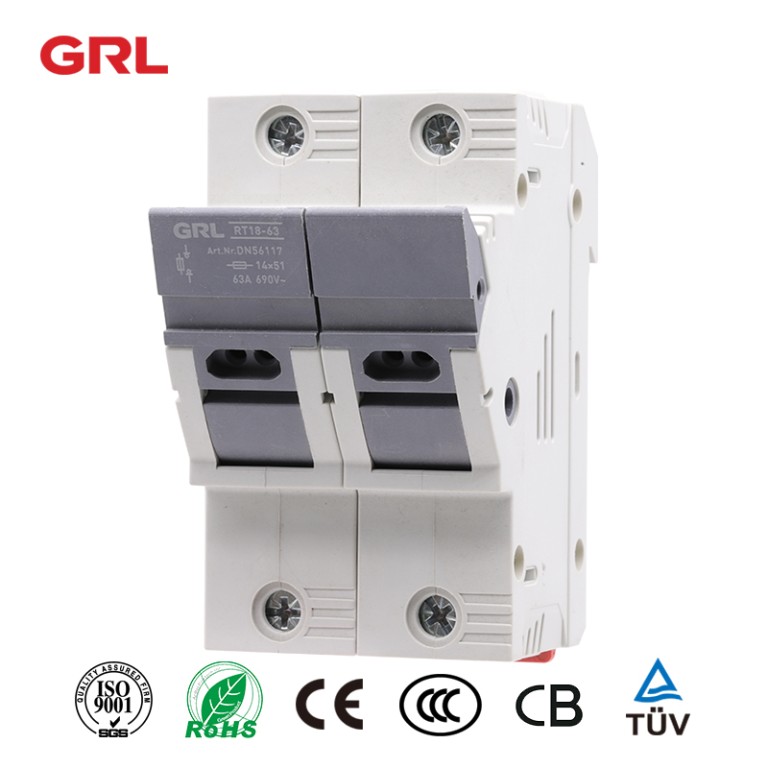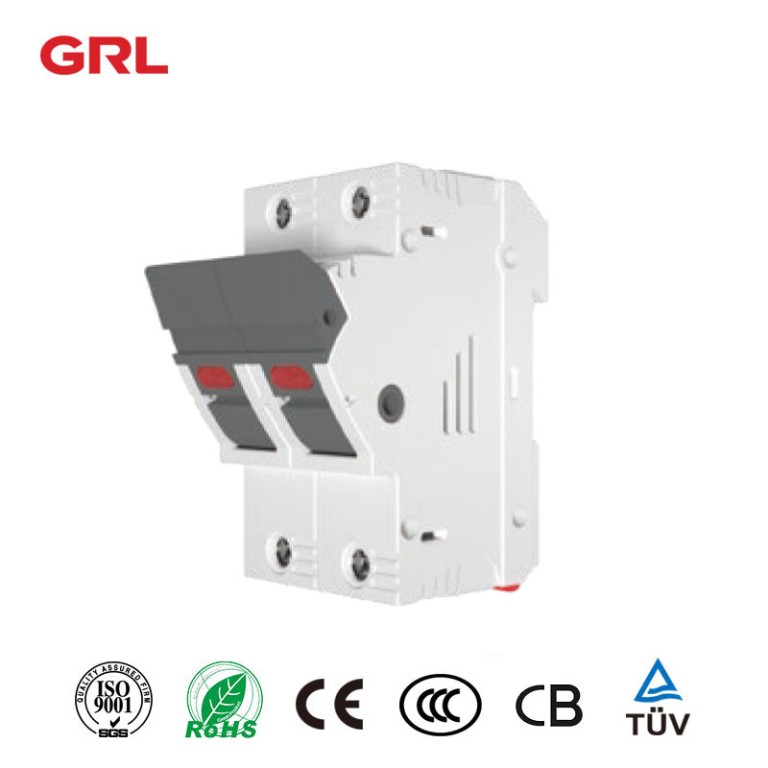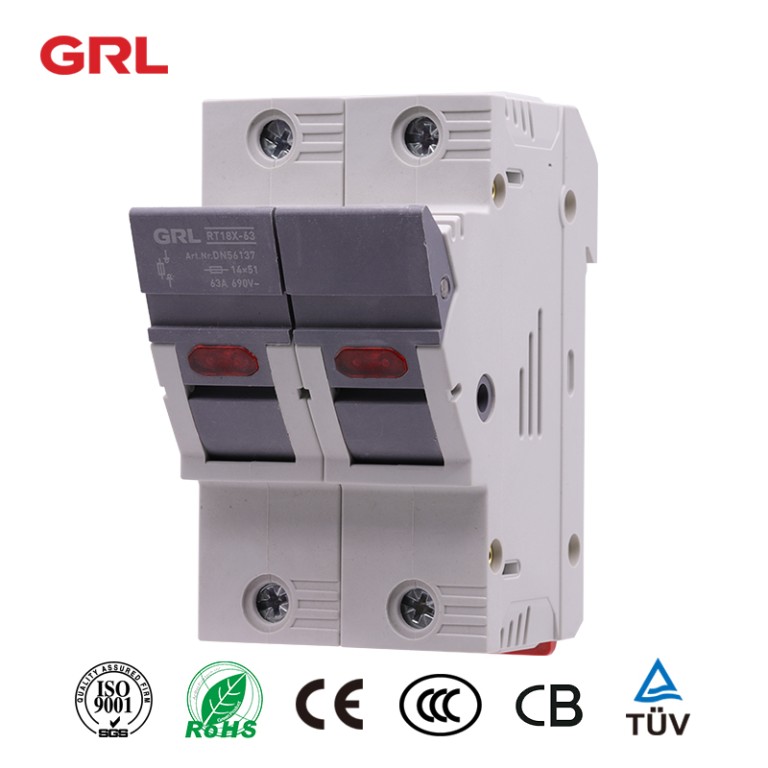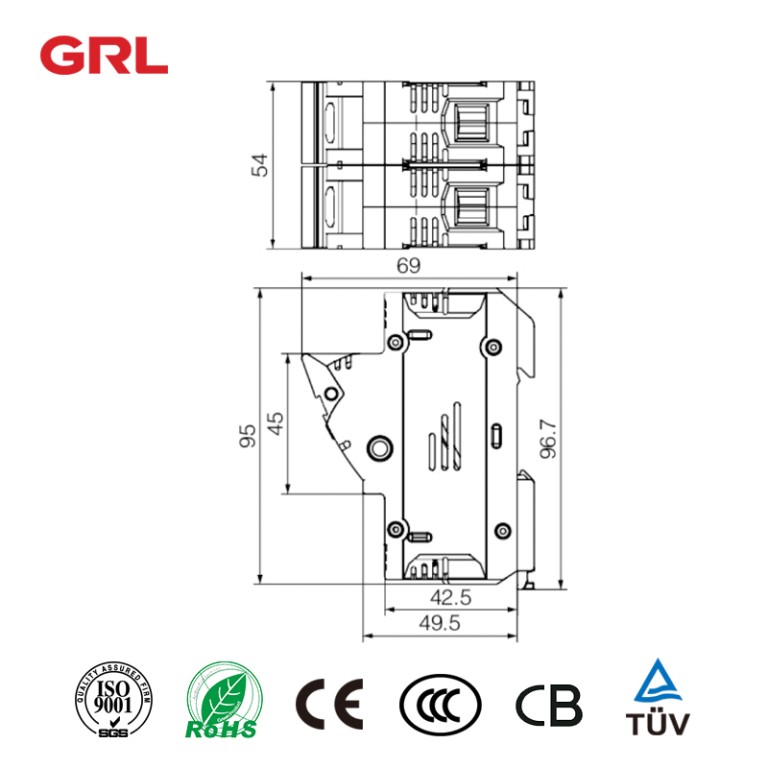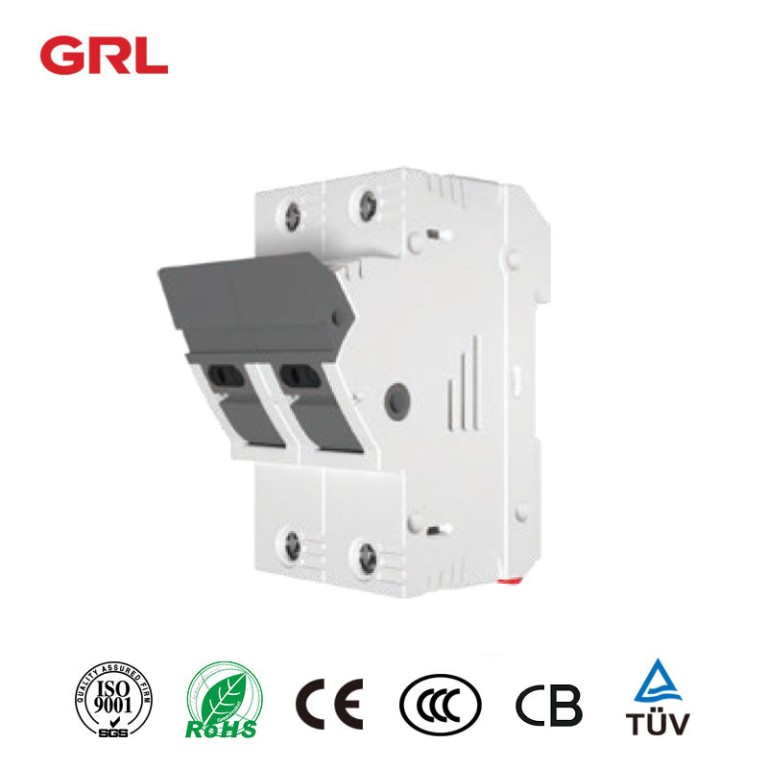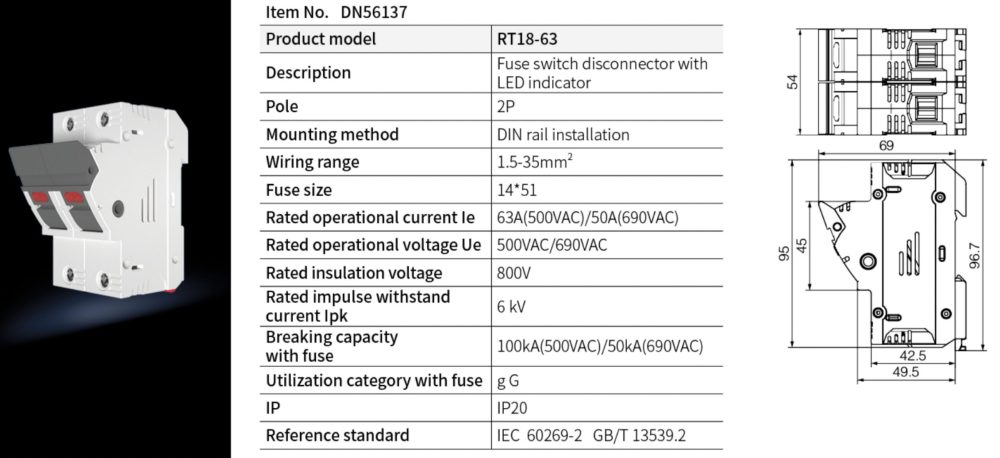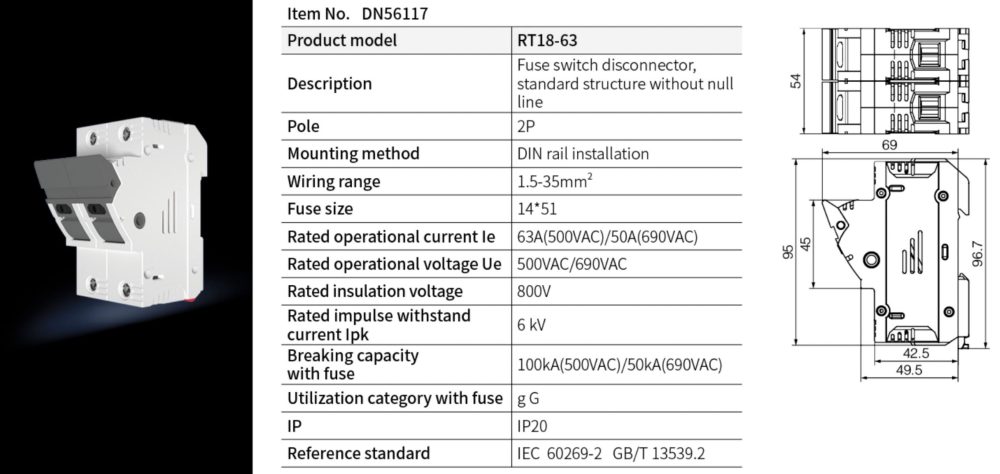Is a circuit breaker the same as a fuse holder?
A circuit breaker and a fuse holder serve the same fundamental purpose of protecting electrical circuits from overcurrent conditions, but they differ in their operating principles and construction.
1.Operation: A fuse holder contains a fuse, which is a thin wire or strip of metal that melts or blows when excessive current passes through it. This interruption of the circuit protects the wiring and equipment.
A circuit breaker, on the other hand, uses an electromechanical mechanism or electronic trip unit to detect overcurrent conditions. When an overcurrent occurs, the circuit breaker trips and opens the circuit, interrupting the current flow.
2.Resetability: A fuse is a one-time, non-resettable device. Once it blows, it must be replaced with a new fuse. In contrast, a circuit breaker can be reset after tripping.
After the cause of the overcurrent is resolved, the circuit breaker can be manually or automatically reset to restore power to the circuit.
3.Protection Speed: Fuses typically respond faster to overcurrent conditions than circuit breakers. Fuses can quickly blow when the current exceeds their rated capacity, providing a rapid response to protect the circuit.
Circuit breakers may have different trip curves, allowing them to provide different response times depending on the magnitude and duration of the overcurrent.
4.Ratings and Adjustability: Fuse holders are available in various current ratings, and the rating of the fuse determines the maximum current it can safely handle.
Circuit breakers also come in different current ratings, but they may offer additional adjustability. Some circuit breakers allow for current adjustments, providing flexibility in adapting to different loads or applications.
5.Replacement and Maintenance: Fuses are relatively inexpensive and easy to replace when they blow. However, it requires manual intervention each time a fuse needs replacement.
Circuit breakers do not require replacement when they trip, as they can be reset. This can be more convenient and cost-effective in the long run, as there is no need to purchase new circuit protection devices.
Both fuse holders and circuit breakers have their advantages and are suitable for different applications. Fuse holders are often found in older electrical systems, automotive applications, and specific industrial settings.
Circuit breakers are more commonly used in modern residential, commercial, and industrial installations due to their resettable nature and flexibility. The choice between a fuse holder and a circuit breaker depends on factors such as the application, specific requirements, budget, and personal preference.
